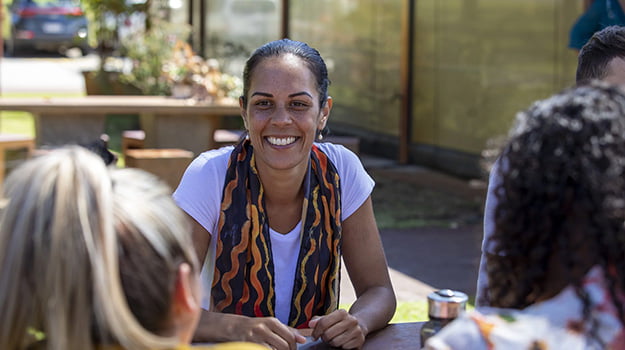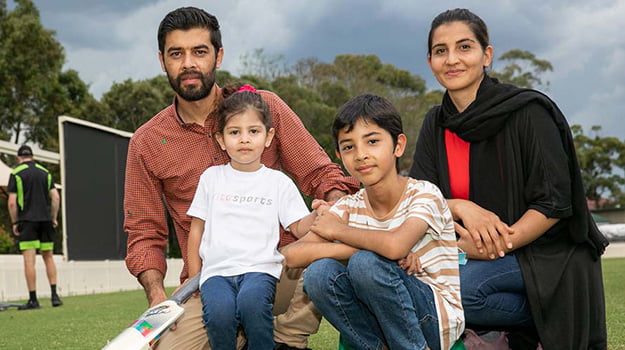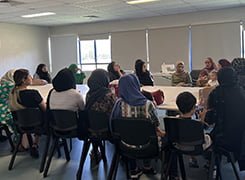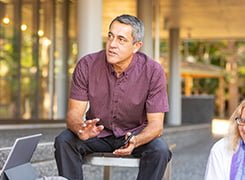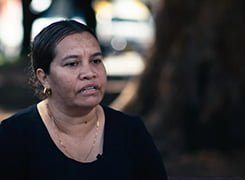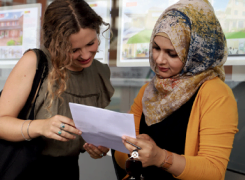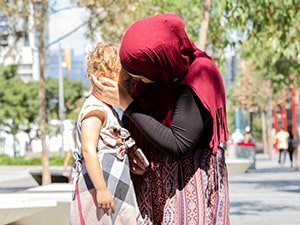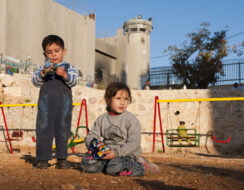12 Jul 2017
NewsFrom the Acting CEO — An international lens on refugee resettlement
In response to the humanitarian crisis in Syria and Iraq, Australia has accepted an additional one-off intake of 12,000 refugees, while also increasing its annual humanitarian intake. We’re one of more than 30 countries that, together, resettle a combined total of close to 200,000 refugees through the United Nations High Commissioner for Refugees (UNHCR) each year.
The two issues — refugee resettlement and the global humanitarian crisis — were the dual focus of UNHCR consultations that SSI attended in Geneva last month.
The first – the Annual Tripartite Consultations on Resettlement — invited a number of international non-government organisations like SSI to take part in high-level discussions between UNHCR and delegations from countries around the world. The second — the UNHCR Annual Consultations with Non-Government Organisations — gave all NGOs that work with refugees the opportunity to discuss the issues facing them in a global forum.
The consultations provided a snapshot of the state of humanitarian responses to the refugee crisis, while also drilling down into some of the issues organisations like SSI face on the ground.
A common theme at both consultations was the ways in which private businesses and civil society are working together to address the challenges facing refugees. One private business, Airbnb, presented a platform the accommodation-sharing company has launched offering 16,000 free or heavily discounted properties to refugees in the USA.
This is one of many examples of how the private sector engages in issues affecting refugees, such as rescue at sea, alternatives to detention and resettlement. The private sector has responded to the global humanitarian crisis with compassion and innovation, something we at SSI have seen played out in partnerships with companies such as Google and Allianz Australia.
In the wake of this unprecedented movement of people, one of the countries to take a leading role in welcoming refugees has been Canada. It has cemented this position with everything from the Prime Minister personally greeting airport arrivals to the country’s settlement of 30,000 Syrian refugees in a four-month period.
Following an invitation from the Canadian government, an SSI delegation, led by SSI CEO Violet Roumeliotis, headed to Vancouver in June to present at the National Settlement Council about outcomes and innovation in refugee resettlement.
One of the subjects covered was SSI’s unique Ignite Small Business Start-ups initiative — a business incubator for budding refugee entrepreneurs that, among a sample of just 35 participants, has saved Australia an estimated $800,000 annually in Centrelink payments. In total, Ignite has helped to establish more than 65 refugee businesses in three years.
While the visit to Canada was a chance for SSI to share innovations like Ignite, it was also an opportunity to learn about what is working well in Canada’s refugee resettlement.
One area of particular interest was the private sponsorship of refugees, which has resulted in around 200,000 refugees being settled in the country since the late 1970s.
Interestingly, there is some evidence that among the cohort of refugees affected by the Syrian conflict, those who arrived in Canada via private sponsorship have achieved higher employment in the short term than those who entered via the government program. This was thought to be partly due to the social capital privately sponsored refugees received from their sponsor and their sponsor’s connections.
Australia has its own version of this program, the Community Support Program (CSP), where business and community sponsors can bring in up to 1,000 refugees a year. SSI will be taking the lessons learned in Canada and applying them in a joint policy paper on the CSP we’re developing with the Refugee Council of Australia.
This knowledge exchange is just one of the ways in which SSI benefits from international visits. The discussions, consultations and meetings held during the trips to UNHCR and Canada are what gives SSI an international lens for the work we do with refugees. They’re opportunities to reflect on what we’re doing well, learn from our peers and, importantly, keep striving to deliver quality, innovative services for vulnerable communities.




